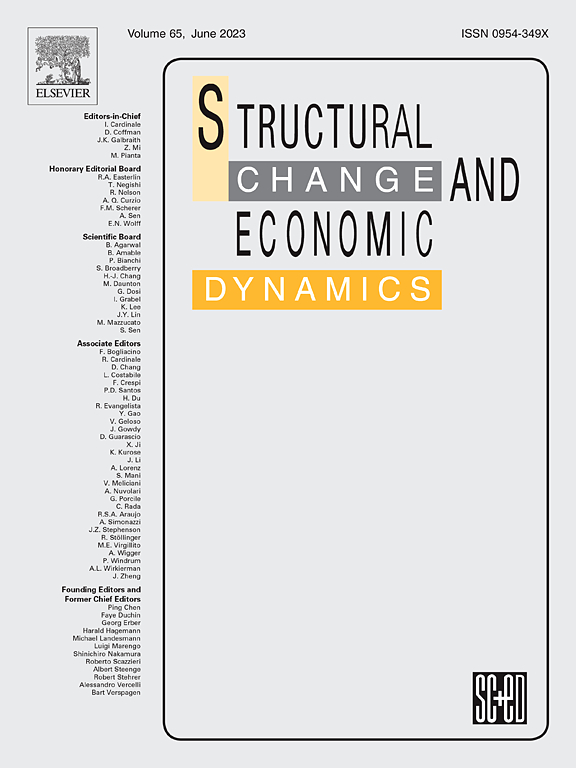国内企业和跨国企业之间的合作如何影响全球供应链中的碳排放绩效?
IF 5.5
2区 经济学
Q1 ECONOMICS
引用次数: 0
摘要
正如可持续发展目标(sdg)所概述的那样,气候行动的重要性促使全球企业追求低碳转型。然而,国内和跨国公司在供应链中的合作对全球碳排放绩效的影响仍未得到探讨。因此,本研究使用区分异质性企业所有权的国家间跨行业投入产出数据库(2000-2019)来解决这一问题。研究结果表明:(1)国内企业与跨国企业在全球供应链中的竞争机制比合作机制更能有效提升全球碳排放绩效;(2)虽然竞争机制可以提高发展中国家的碳排放绩效,但在这种机制下,纯跨国企业的供应链加剧了发达国家与发展中国家在平衡碳排放和增加价值方面的差距;(3)决定全球供应链碳排放绩效的关键区域受到合作机制的显著影响,而关键经济部门和最终需求不受合作机制的显著影响;(4)合作机制重塑了碳强度效应和需求结构效应对全球各供应链碳排放绩效的驱动作用,但生产结构效应基本不受影响。本文章由计算机程序翻译,如有差异,请以英文原文为准。
How coopetition between domestic and multinational firms shapes carbon emissions performance in global supply chains?
The importance of climate action, as outlined in the sustainable development goals (SDGs), has promoted firms worldwide to pursue low-carbon transitions. However, the impact of coopetition between domestic and multinational firms within supply chains on global carbon emissions performance remains unexplored. Thus, this study addresses this issue using an inter-country inter-industry Input-Output database (2000–2019) that distinguishes heterogenous firm ownership. The results show that: (1) the competition mechanism between domestic and multinational firms within global supply chains is more effective in improving global carbon emissions performance than the cooperation mechanism; (2) although the competition mechanism can enhance carbon emissions performance in developing countries, supply chains of purely multinational firms under this mechanism exacerbate the widening gap between developed and developing countries in balancing carbon emissions and value added; (3) key regions that determine the carbon emissions performance of global supply chains are significantly affected by coopetition mechanisms, whereas key economic sectors and final demands are not; and (4) coopetition mechanisms reshape the driving role of carbon intensity effect and demand structure effect on carbon emissions performance of various global supply chains, but the production structure effect remains largely unaffected.
求助全文
通过发布文献求助,成功后即可免费获取论文全文。
去求助
来源期刊

Structural Change and Economic Dynamics
ECONOMICS-
CiteScore
9.60
自引率
4.90%
发文量
159
期刊介绍:
Structural Change and Economic Dynamics publishes articles about theoretical, applied and methodological aspects of structural change in economic systems. The journal publishes work analysing dynamics and structural breaks in economic, technological, behavioural and institutional patterns.
 求助内容:
求助内容: 应助结果提醒方式:
应助结果提醒方式:


